Once Upon a Time in Hollywood: The First Novel By Quentin Tarantino (A Phoenix paperback, 3691)
£6.00£8.50 (-29%)
Quentin Tarantino’s long-awaited first work of fiction – at once hilarious, delicious, and brutal – is the always surprising, sometimes shocking new novel based on his Academy Award-winning film.
RICK DALTON – Once he had his own TV series, but now Rick’s a washed-up villain-of-the week drowning his sorrows in whiskey sours. Will a phone call from Rome save his fate or seal it?
CLIFF BOOTH – Rick’s stunt double, and the most infamous man on any movie set because he’s the only one there who might have gotten away with murder . . .
SHARON TATE – She left Texas to chase a movie-star dream, and found it. Sharon’s salad days are now spent on Cielo Drive, high in the Hollywood Hills.
CHARLES MANSON – The ex-con’s got a bunch of zonked-out hippies thinking he’s their spiritual leader, but he’d trade it all to be a rock ‘n’ roll star.
HOLLYWOOD 1969 – YOU SHOULDA BEEN THERE
Read more
Additional information
| Publisher | W&N, 1st edition (29 Jun. 2021) |
|---|---|
| Language | English |
| Paperback | 416 pages |
| ISBN-10 | 1398706132 |
| ISBN-13 | 978-1398706132 |
| Dimensions | 11.2 x 2.8 x 17.6 cm |

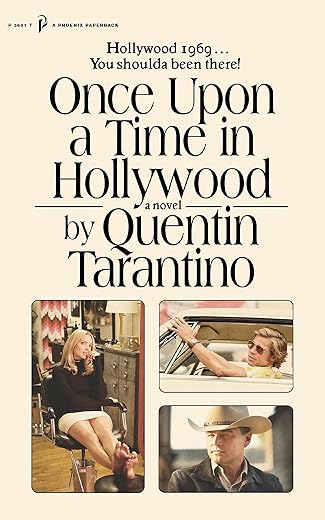
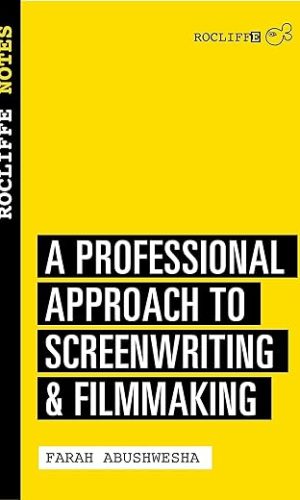
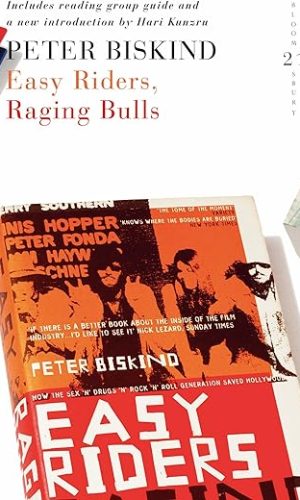
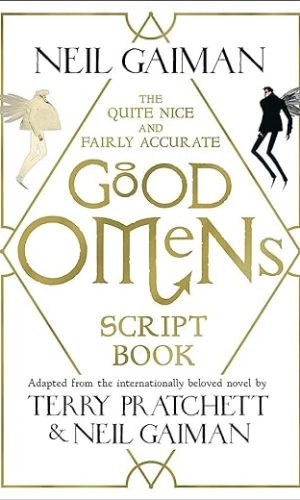

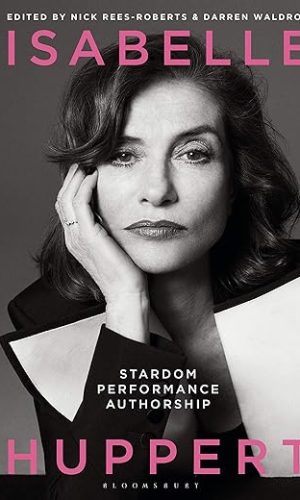
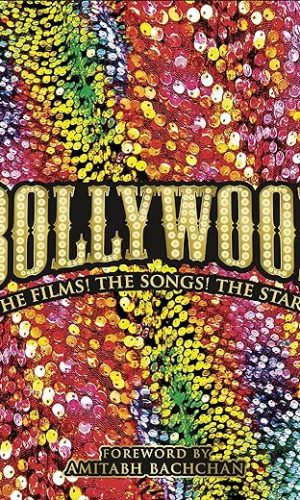
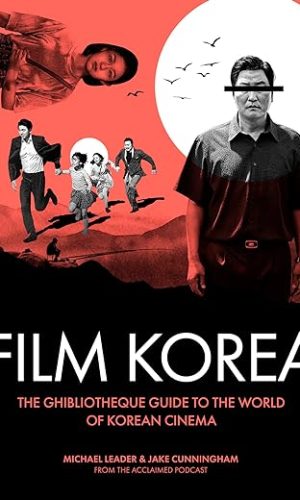
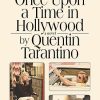
by Lurleen fan
I loved the film, and the book does add to it, with further information about the characters and situations, but really does go on and on. I found myself skimming large parts, especially the background story of the Lancer show, which I felt was unnecessary.
by Michael X Smith
As a novel, Once is packaged as a film tie-in, with eight stills from the movie on the cover and information about the film preceding the text. Set in Hollywood 1969, the book contains two types of material. Firstly, with echoes of a buddy movie, it tells the stories of Rick Dalton, a fading TV western star, and Cliff Booth, his stuntman and hired help. Secondly, and the novel’s real subject, it tells about Hollywood. Both are braided into the Roman Polanski, Sharon Tate and Charles Manson stories, a background and sometimes foreground that darkens the tone. With two different but overlapping types of material, the text can feel like two different books spliced together, with its plot delayed and half-buried under excessive context. As a novel, Once feels like a loosely structured draft.
Yet the excess of information that contributes to this looseness is often interesting in itself, especially for movie buffs and fans of Hollywood history. Insider knowledge provides definitions of terms like “ringer” (203) and “tagging” (204) and there are multiple descriptions of procedures on a film set. Much of the special knowledge is gossip about the sex lives and alcohol consumption of once-famous names now safely dead, which presumably protects the author from any legal action. Hollywood gossip is a saleable commodity with a history as old as Hollywood, and the combination of insider knowledge and gossip makes for “a good education in what the entertainment business is like” (164), a phrase which could be a subtitle for Tarantino’s novel.
Of course, reliance on the ephemera of popular culture has its risks. TV, movies and pop music have their appeal, which may include nostalgia, but they do tend to age and disappear. For an audience that has never seen Gunsmoke or Bonanza, would reference to them make sense? The novel Once, and even Tarantino’s films, may be generation-dependent. The argument about the meaning of Madonna’s “Like a Virgin” in Reservoir Dogs, or comment on the Delfonics in Jackie Brown, is probably a niche interest even to an audience contemporary with the film. A film or book that depends heavily on popular culture has a built-in half-life. Yet Tarantino is also knowledgeable about the less ephemeral, and Cliff Booth’s extended riff on foreign film (30ff), especially Kurosawa, suggests a wealth of knowledge that would make non-fiction books by Tarantino about film a superb read.
Once is a blend of fiction and non-fiction, a 400-page text informed, perhaps over-informed, by insider knowledge of the film industry, its history and characters. The book has a raw vigour, with interesting themes like ambition and personal and business relations among people in a cut-throat industry. Its main fictional characters, Rick and Cliff, are interesting and sympathetic enough that we care about them, and the ending where “Rick realizes how fortunate he is and was” to be a film and TV actor, to be paid for “pretending to be a cowboy” (399), convinces. It’s as if Once says, look at all this mess of greed, vanity and dishonesty, and talent—the movie business—and yet, isn’t it wonderful? The reader may think of Sam Goldwyn’s claim that film is “the greatest near-art form of the twentieth century,” and agree.
by FictionLover
Quentin Tarantino has made a novel from the screenplay of his Oscar winning movie ‘Once Upon A Time In Hollywood’ and it is, frankly, wonderful. It is such a good book everyone interested in film and cinema should buy it and read it. If I could give it 6 stars, I would.
Novelisation has fallen out of fashion but what QT has done is a tad different: in the book-of-the-film we are showing the extensive back stories of the principal characters which Tarantino had already written before filming, like any good novelist would do *and* he gives a number of ‘lectures’ on the history of film. And you might think that ‘lecture’ would mean dull, plodding exposition and you’d be wrong. It is a total delight, erudite and profoundly understood (he probably wrote most of it from memory because he really is Mastermind Champion on movies, especially westerns).
Since devouring this book I’ve found a YouTube interview between QT and a US television news channel; in it he lets the world know three things:
1 he intends to do more novels based on his screenplays (I can’t wait to read Inglorius Basterds – the novel)
2 he’s written a stage play but won’t say what about – given his terrific dialogue writing skills that’s going to be one to watch
3 his movie-making career is likely to come to an end – he’s always said he’ll only make ten pictures and OUATIH was his ninth – afterwards he intends to become ‘a man of letters (his own words).
The novel of OUATIH is covers the same general ground as the movie but with many extensions and expansions, and the scenes in a different order.
Cliff Booth (Brad Pitt) the stunt double for fading actor Rick Dalton (DiCaprio) gets the lion’s share of the novel and develops into a fascinating character study.
Buy it.
by pangbourne
Having seen the film a couple of times I enjoyed this book as it fills in further character details left out of the film script.
I particularly liked the back story of Cliff – in the book we discover he is a genuine WW2 hero with purple heart medals etc.
As in the film, there is a commentary voice over explaining to you the reader what is going on. The best example (and I hope this isn’t a spoiler) is when Cliff comes back to the states, meets up with an old girlfriend (who is also a girlfriend to the local mafia mob boss) and they go to a pizza parlour. Two mafia thugs confront him, he asks are they Eyetalians, because he got this here purple heart for killing scores of Eyetalians back in a place called Sicily. He then shows them his gun and states that he could probably shoot them both in front of all the restaurant witnesses and no one would give a damn. They don’t take the threat seriously and he promptly shoots them both dead.
The commentary continues…. Well the local police, being aware that Cliff is an honest to god war hero with a medal and all, take the view that if he wants to shoot a couple of mafia thugs in their jurisdiction then that’s all right with them and hell they’ll even pay for the pizza!
You’ve got to admit, that is classic Tarantino ????